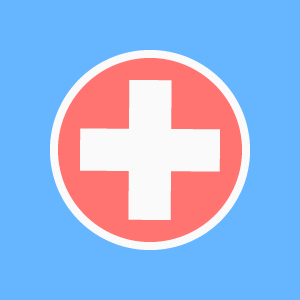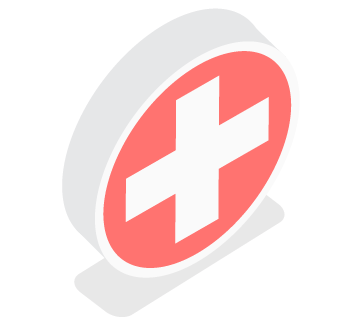Emergency First Aid / CPR and Standard First Aid / CPR Recertification
Course Outline Summary: 6.5 hours (in class time requirement)
According to the WSIB requirements for First Aid providers, all Compulsory Modules taught in an EFA and an SFA recertification. This certification expires every 3 years.
Compulsory Modules
The following topics must be covered:
- Roles & Responsibilities of the First Aider
- Casualty management – Unresponsive, Casualty Management Conscious with Head/Spinal
- Adult Resuscitation – Choking, CPR, and AED
- Severe Bleeding and Wound Care
- Medical Conditions
- Burns
Standard First Aid/CPR
Course Outline Summary: 13 hours
According to the WSIB requirements for First Aid providers, all Compulsory Modules are taught in an EFA and on day 1 of an SFA. Elective Modules are taught on Day 2 of an SFA. This certification expires every 3 years.
Compulsory Modules
The following topics must be covered:
- Roles & Responsibilities of the First Aider
- Casualty management – Unresponsive, Casualty Management Conscious with Head/Spinal
- Adult Resuscitation – Choking, CPR, and AED
- Severe Bleeding and Wound Care
- Medical Conditions
- Burns
Elective Modules
In addition to the compulsory modules, a minimum of 8 elective modules are required and suggested modules include:
- Secondary Survey
- Child and Infant Resuscitation
- Two Rescuer CPR
- Bone and Joint Injuries
- Chest Injuries
- Eye Injuries
- Multiple Casualty Management
- Poisoning
- Environmental Illness and Injuries
- Rescue Carries
First Responder
Course Outline Summary: 40 hours
This course focuses on advanced care and CPR skills for professional first responders or those wanting to become first responders. Course teaches techniques for sustaining life, preventing further injuries, and caring for illnesses and injuries until the next level of medical personnel arrives. Includes CPR level HCP and AED.
Part 1: Preparing to Respond | Part 2: Establishing Priorities of Care | Part 3: Traumatic Injuries | Part 4: Medical Emergencies | Part 5: Special Populations and Situations
- Sudden illnesses
- The emergency scene
- Poisoning
- Preventing disease transmission
- Heat‐and cold‐related emergencies
- Anatomy and physiology
- Special populations & crisis intervention
- Assessment
- Childbirth
- Respiratory emergencies
- Reaching and moving patients
- Airway and ventilation
- Multiple casualty incidents
- Circulatory emergencies
- Transportation
- Bleeding
- Shock
- CPR HCP Level
- Soft tissue injuries specific legislation
- Musculoskeletal injuries
- Head and spine injuries
- Chest, abdominal, and pelvic injuries
Wilderness First Aid
Course Outline Summary: 20 hours (Course Taught Outdoors)
During this training, we focus on a basic level of Wilderness & Remote First Aid that covers material in Standard First Aid & CPR, plus special material on techniques for wilderness and remote areas. The course also offers strategies for providing extended care for up to 24 hours. This course is taught in an outdoor setting and requires greater physical activity and endurance than typical first aid training. Suitable for those who work or live in remote locations or who are outdoor recreation enthusiasts.
The following topics are covered:
- Planning
- Bone
- muscle and joint injuries
- Your health
- Sudden medical emergencies
- Assessment
- Environmental emergencies
- Airway emergencies
- Poisons
- Breathing and circulation emergencies
- Extended care
- Cardiac and respiratory arrest (includes CPR-C)
Evacuation:
- Transporting the ill
- Wound care for injured person
- Head and spine injuries
Advanced Wilderness First Aid
Course Outline Summary: 40 hours (Course Taught Outdoors)
Comprehensive first aid and CPR techniques for those who need a higher level of training to work and respond to emergencies in isolated or wilderness settings. Training is also suitable for those who act as guides or supervisors for groups of people. The course covers material in Standard First Aid & CPR, plus advanced strategies for providing extended care for more than 24 hours. Part of the course is taught in an outdoor setting and requires greater physical activity and endurance than typical first aid training.
The following topics are covered:
- Planning
- Bone, muscle and joint injuries
- Personal health
- Sudden medical emergencies
- Assessment
- Environmental emergencies
- Airway emergencies
- Poisons
- Breathing and circulation emergencies
- Extended care
- Cardiac and respiratory arrest (includes CPR-C)
Evacuation:
- Transporting the ill
- Wound care injured person
- Head and spine injuries
Marine First Aid
Course Outline Summary: 16 hours (Course Taught Outdoors)
During this basic two-day course offering an overview of first aid and cardiopulmonary resuscitation (CPR) skills for the marine/fishing industry. Course meets the requirements of Transport Canada outlined in Transport Publication (TP) 13008. Designed for any person who wants to obtain a rating certificate, endorsement, or a Master or Chief Mate limited certification, and for those providing first aid on board a vessel engaged on a near-coastal voyage, class 2, or on a vessel on sheltered waters.
The following topics are covered:
- Assessment of needs of ill or injured persons and threats to own safety
- Appreciation of body structure and functions
- Positioning of person
- The unconscious person
- Resuscitation techniques (including CPR C)
- Control bleeding
- Management of shock
- Burns, scalds, and injuries caused by electricity
- Rescue and transport of person
Other topics including:
- Improvising bandages
- Rescue in confined spaces
- Infectious diseases,
- Personal health and hygiene
Marine Advanced First Aid
Course Outline Summary: 31 Hours
This program focuses on comprehensive first aid and CPR techniques and scenarios for those who need a higher level of training to work and respond to emergencies in a marine setting. Course meets the requirements of Transport Canada outlined in Transport Publication (TP) 13008. Designed for any person who wants to obtain a Master’s or Officer’s certificate or endorsement, or those providing first aid on board a vessel engaged on a coastal voyage, class 1, or unlimited voyage.
The following topics are covered:
- The emergency scene
- Preventing disease transmission
- Assessment
- Respiratory emergencies
- Airway and ventilation
- Circulatory emergencies
- Bleeding
- Shock
- Soft tissue injuries
- Musculoskeletal injuries
- Head and spine injuries
- Chest, abdominal, and pelvic injuries
- Sudden illnesses
- Poisoning
- Heat‐and cold‐related emergencies
- Reaching and moving people
- Multiple casualty incidents
- Toxicological hazards aboard ship
- Radio medical advice
- Pharmacology
- Sterilization
Oxygen Administration
Course Outline Summary: 6 Hours
This course teaches how to operate various oxygen devices as well as how to respond and treat respiratory emergencies. The course is for those who are required to use oxygen in the workplace including lifeguards, emergency medical services (EMS) professionals, etc.
The following topics are covered:
- Breathing devices and suction
- Resuscitation masks
- Bag‐valve‐masks (BVM) Adult, Child, and Baby
- Supplemental oxygen
- Delivery devices
First Aid Instructor
We have created a comprehensive program to develop First Aid Instructors to deliver CERT First Aid Courses. Candidates enter our comprehensive Instructor Development Program, designed to prepare them to support dynamic, learner-centered classroom environments. This involves several steps first they must achieve current Standard First aid certification in First Aid through CERT. Second, they must complete our online requirement (knowledge, theory, and fundamentals of instruction). The third is to complete the classroom component (skills and evaluation of skills). Last candidates are monitored on the delivery of their own program. They are also welcome to co-teach our program before monitoring.

Testimonials
Training with CERT is always fun, interactive and engaging. I specifically like how they customize the course to meet the needs of all participants.
- Meghan
This course was perfectly balanced providing us with the information we need and providing us with an opportunity to apply what we learned.
- Mohammed
The course was amazing and very reasonably priced
- Clair
I left the course with the confidence I need to respond in a first aid emergency. Thank you!
- Steve
Our organization has been using CERT for 18 years to deliver our first aid and CPR training and we wouldn’t go anywhere else. We have been so happy with the service we have received.
- Matt
Our organization consists of people with varying backgrounds from Nurses and doctors to engineers and electricians. We love how CERT is able to provide a training that meets everyone's needs. Thanks
- Harish
CERT was able to create scenarios that were specific to possible accidents that would take place in our workplace. We practice these scenarios in class. One day an accident took place where I was required to use my first aid skills. I was able to respond with confidence and in turn, provided treatment to care for a casualty (and save their limb).
- Mike
